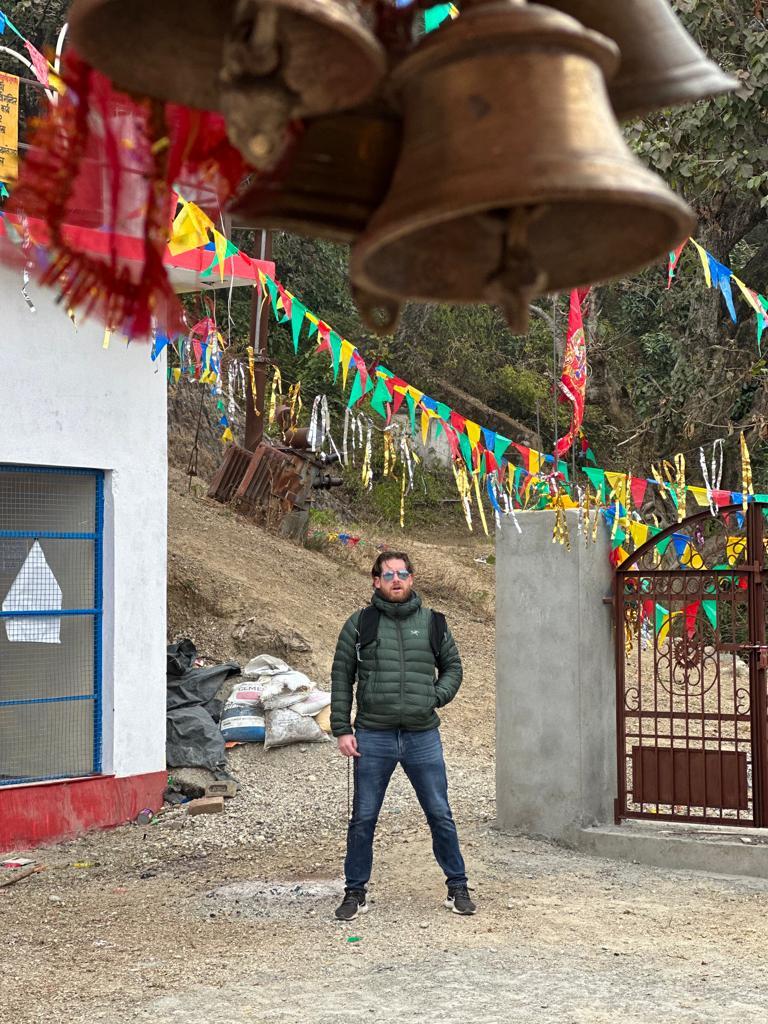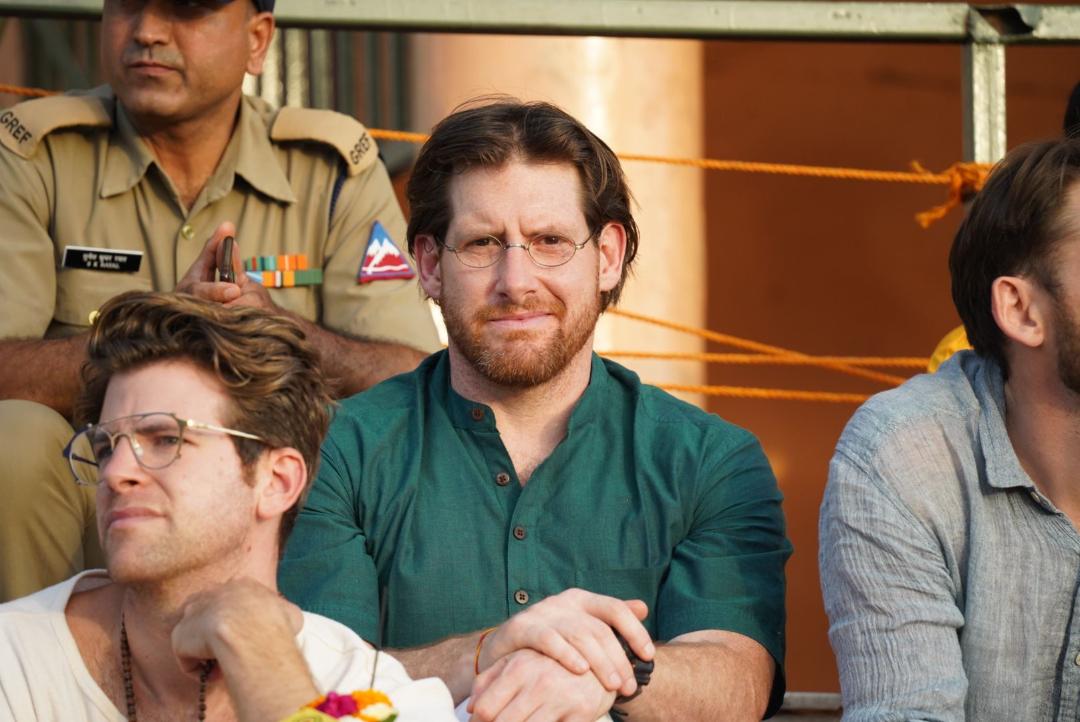According to Western medical science I suffer from a condition called depression. And from my perspective, I suffer. The conditions of my reality are such that sometimes no matter the environment – with loved ones, by myself, in mediation or not, eating or fasting, sleeping or awake – I feel a sense of dissociation, dread and low energy levels in my body. It comes and it goes and the time it stays can never be predicted. It’s not a comfortable existence.
Practicing yoga has been a wonderful way to help with depression. Lonely and isolating thoughts can’t intrude when those thoughts have been stilled: yogas chitta vritta nirodha [trans: yoga is the stilling of the movements of the mind].
When I told a good friend recently that my yoga practice didn’t seem to be helping with the symptoms of my depressions, as it had in the past, she said, “maybe it’s not working? Maybe you should try something else? Like a hobby?”
My instant reaction was, “how dare you question my practice?” I got defensive. She didn’t understand. She’s not a yogi. These practices are fundamental to my life. Yoga has helped me overcome substance abuse, break ups, a mid-life crisis, and poor work/life balance. What do you mean “it’s not working”?
Christopher Parkison finds chasing the right answer to be an intellectual addiction. A recent yoga retreat in India acquainted him with a higher wisom.https://t.co/GmHL58Xv2a@broadsheet_ie @BenPantrey @danieleidiniph1 @IlsaCarter1 #yoga #yogaretreat
— CassandraVoices (@VoicesCassandra) June 11, 2022
Right and Wrong
As it turns out, she was both right and wrong. She was right: the yoga wasn’t working. She was also wrong: yoga always works.
My yoga practice wasn’t working because I was expecting it to alleviate my suffering like a drug alleviates the symptoms of disease. I practice and I stop suffering. Like buying a salad at a restaurant. Like purchasing a bicycle. A contract.
I was offering my dedication and daily practice and expected to receive something (bliss, freedom, insight) in return of equal or greater value. And the harder and longer I practice, the more and more rewards I receive. In this case, I expected to be delivered from my depression in return for my yoga practice: daily meditation, kriya and pranayama, and Japa practices.
So, my friend was right: yoga wasn’t working because that is not the way yoga works. In a spiritual practice, the investment is the return. The discipline, the devotion, the surrender, these are the practices AND the results. And this includes surrendering any expectation that your suffering will end just because you practice yoga.
Our daily lives are comprised of contracts or agreements. We aren’t aware of this most of the time. We work to make money. We use money to pay for food and shelter. These are transactional agreements we make many times a day.
I use money to buy a thing and I expect a thing in return for payment. The expectation is of something foreseeable with pretty good accuracy: I see an orange, I pay money, I go home with the orange.
Let’s go further. The dentist says if I brush my teeth, I won’t get cavities. Doctor says If I eat a healthy diet, I’ll avoid heart disease. I shower to keep my body free of germs. I eat to nourish my body. My friend and I agree to meet for lunch at 12:30pm.
These are what we might call causal agreements: I do one act and expect a certain result or effect in the future in return. The expectation is foreseeable based on past experience and current knowledge with reasonable accuracy: if I brush my teeth, it is reasonable to expect that I will get fewer cavities than if I did not.

The Wrong Dressing…
Sometimes the orange you buy isn’t ripe, or the salad you purchase doesn’t have the right dressing. You can bring it back and get a refund or buy another orange or salad. Sometimes no matter how much you brush your teeth, you get a cavity. And sometimes your friend texts you a half hour before lunch to cancels.
In the manifest world, events are sometimes out of our control and agreements are broken. That’s why we have contracts: to incentivize performance and provide a reasonable expectation of performance in the future. With incentive (cause) the seemingly chaotic world develops a certain stability (effect).
I was seeing my yoga practice as just another transaction. As with buying an orange, I assume that if I practiced hard and consistently enough, I would see a change in my mood, my health, and my overall happiness would improve. As if there were some sort of Rewards program that grants more freedom and happiness the more we meditate, perform religious rituals, and/or bend ourselves into pretzels.
This contract is made with our egos, “I” want to avoid suffering so I will practice āsana. I want to achieve enlightenment so I will meditate every day. If I practice this kriyā long enough I’ll feel refreshed when I am done.
Spiritual (not religious) work is done internally. By definition, it should always be under our control. So why is there no guarantee that the spiritual work you do today will pay off tomorrow? Because spiritual work is not transactional: if it were, we’d always have a return because we are the only ones that need to perform.
A refined spiritual practice transcends the ego and the deal-making we engage in with it. Part of that transcendence is letting go of expectations and the ego incentives that feed them. All of the practices and the effects of yoga happen only if I commit totally and let go of “I.” And the practice of letting go of “I” never ends.
In moments of union or yoga we experience totality. There is no lack. There is no restriction. We are liberated, filled with vast silence. This can last seconds, minutes, days, weeks, months or years depending on the effort involved, if we can let go of the ego and its tendencies.
And so there is no need for a contract in the first place; there is no lack to be fulfilled. But to do that there must be constant effort and a discipline that becomes devotion. Resistance that arises from conditioning must become love. So that the act becomes the gift itself in the present instead of something to be had in the future.

Hunger
If I am hungry, I need food to satisfy hunger. This is a basic function of the body. As long as the body is alive we must eat to keep it nourished. Hunger will always arise though, and needs to be dealt with (food is but one option, actually). There is no such biological prerequisite for the ego, however. And yet most of us feel there is, and this is one source of suffering.
The ego will never be satisfied, no matter how much you feed it. Ego hunger, like actual hunger, will never go away unless we transcend it through practice.
There is no causal/transactional link between the practice and the state of union or state of “no lack”. The practice is the state, and the state is the practice.
Transcendence as a result of practice involves moving past the perceived separation between cause and effect, between past and present, and present and future. A strong spiritual practice never ceases, there is no past and now and future. There is only now. And now. And now. And now.
We are humans and it is human nature to suffer, to make mistakes, to lie, to steal, to cheat, to hurt others just as it is human nature to tell the truth, give to others, to love and to forgive.
We have a great capacity for growth as well as destruction. That will never change. The gift of a spiritual practice is not the removal of depression, lying, cheating or suffering from your experience but the transcendence of how you perceive them.
As long as I perceive my yoga practice as something to be bartered with it will forever be one half of a transaction with my ego, and my suffering will only increase.

Image: Daniele Idini
Separateness
One need not be a Hindu or even a yogi to have a spiritual practice. Many faiths lead to a transcendence of the ego and cause and effect in the material world. Prayer, service, devotion and keen insight require total commitment of your being and isn’t just an intellectual exercise.
Much of the modern world is based on an intellectual concept – the presumed individuality of existence. Each of our bodies are a thing with a brain that controls it and heart that sustains it.
One aspect of this view is actually the contract: by definition, there must be two parties to a contract. So, we view each other as separate and separate ourselves on a daily basis, many times a day. This point of view will always lead to internal and external conflict because conflict requires two parties as well.
Separateness is one of the great illusions of the modern world. It is a belief that is reinforced again and again. A belief is an intellectual understanding based on assumptions. You see this everywhere. People “believe” in lots of “things.”
Again, two parties must exist: me and the concept. This is totally different to Faith. Faith is a knowingness, a surrender to what is: that there is no separation.
In a state of Oneness there is no contract. There is no conflict. It takes discipline to overcome the feeling of separateness created by our conditioning and our ego. That constant discipline is devotion. In that state of constant effort, we are free from the suffering of separateness.
And so my friend was also wrong. It was the practice which led me to these insights about my condition. All the benefits of a spiritual practice happen now, not sometime in the future as a return on the investment of your practice.
The promise of yoga IS the sustained practice: be that pranayama, meditation, yamas and niyamas, āsana or puja. Yes, you may reach an enlightened state sometime in your life.
Yes, it may happen in the future. Yes, daily practice can make enlightenment more likely to happen. Yes, sometimes your friend cancels and you are disappointed. Yes, sometimes you will feel like you want a spiritual refund. But that’s not the point. A spiritual practice, once started, never ends. It is action, not passively waiting for suffering to end.




